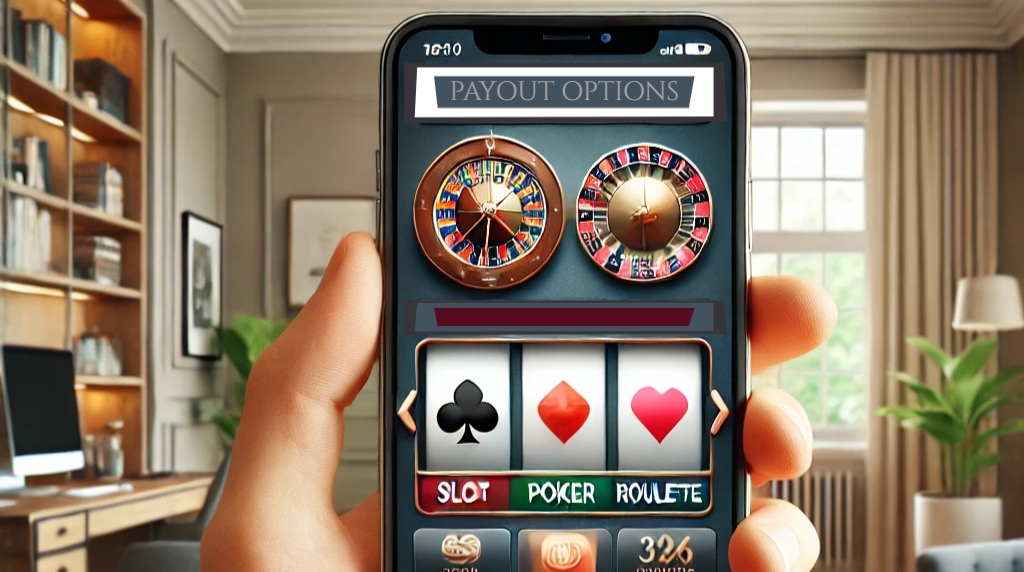Casino Payment Delay Red Flags: When Waiting Is a Concern
Getting paid is the entire point. As an expert who studies online casino apps and the US market, I can tell you that a swift, dependable payout process is the clearest sign of a healthy operation. Everything else is secondary. When those payments lag, every player should stop and take notice.

US casino payment delays are a usual red flag for experienced players.
In the highly regulated US online casino landscape, payment delays are not just an inconvenience. They can be a blinking amber or red light, indicating a deeper structural issue. Let’s explore the difference between a normal processing hiccup and a true cause for concern.
Understanding the Payout Journey
A withdrawal is never truly instantaneous. Funds need to move from the casino’s secure reserve to your personal account. This involves multiple steps, each adding a small amount of time.
The total wait is split into two main phases. First, there is the processing time at the casino, during which the operator reviews and approves the transaction. Second is the payment method transfer time, which refers to the time it takes for the bank or processor to transfer the money.
What is a Normal Timeline in the US?
The US market is now driven by modern, regulated technology. The old days of waiting weeks for a check are long gone. The current expectation for a licensed US operator is much faster.
The casino sites with fastest withdrawals are not always easy to find. You will need to investigate, which is why our guuide can be a valuable resource.
For a regulated US online casino:
- E-wallets (like PayPal/Skrill): Generally processed and in your account within a few hours to a maximum of 24 hours.
- Play+ Cards: Often the fastest method, sometimes nearly instant once casino approval is complete.
- Online Banking/ACH: Typically takes 1 to 3 business days for the funds to fully settle in your bank.
- Debit Cards: Processing times may vary from 2 to 5 business days, depending on the player’s issuing bank.
If your payout takes significantly longer than the stated timeframe for your chosen method, the situation warrants closer examination. A one-off issue is forgivable; a pattern is not.
Legitimate Reasons for a Temporary Delay
Not all slow payouts are a crisis. Several understandable, one-time factors can temporarily extend the waiting period. These are typically routine, even for the most experienced operators.
Identity Verification
The most common delay is the Know Your Customer (KYC) check. Regulated casinos must verify your identity before the first large withdrawal. This protects against fraud and money laundering.
To defray online casino payout delays, you may be asked to submit:
- A government-issued photo ID.
- Proof of residential address, like a utility bill.
- Proof of payment method ownership.
This process should take no more than 72 hours for a standard account. If you wait until you win to submit documents, you will inevitably face a delay.
Large Payouts
A massive win often triggers an extra layer of human review. Higher dollar amounts mean higher risk, and the casino’s finance team will conduct deeper checks. This is a common and responsible practice.
Some platforms have weekly or monthly maximum withdrawal limits. If your win exceeds this limit, the payout may be sent in scheduled instalments. Check the terms before you play.
Bonus Terms
If you used a bonus, the casino must confirm that you met the wagering requirements. They check your play history to ensure compliance with the terms and conditions. Failure to meet these terms will delay, or even void, your payout.
This review is mandatory and ensures fair play across the platform. A responsible casino will communicate this review process clearly.
Banking Holidays and Weekends
Traditional banking methods, such as ACH, do not process transfers on weekends or federal holidays. If a casino approves your bank transfer request on a Friday afternoon, the funds may not move until Monday. This is a systemic issue.
The Red Flags: When Delays Become Suspicious
A genuine red flag isn’t a single delay; it’s a structural breakdown in process, communication, or financial stability. These warning signs demand your immediate attention and possible action.
Communication Blackout
A legitimate delay comes with a reason. A major red flag is when customer support cannot offer a specific, verifiable reason for the lag. They will give vague assurances or repeat boilerplate language.
If support promises a payout “tomorrow” repeatedly, but tomorrow never comes, that is a serious issue. Clear communication builds trust; silence or evasion destroys it.
This is a classic tactic of a problematic operator. You submit your KYC documents, and they are rejected for non-specific reasons, forcing you to resubmit. This creates an endless delay loop.
For example, a casino may reject a clear, high-resolution utility bill, claiming it is “unreadable,” only to reject the second one for a new, arbitrary reason. This is an intentional stall.
Be Aware of Policy Changes
The casino suddenly introduces a new, obscure withdrawal policy only after you request a payout. These changes might include new fees, or a restriction on a popular, fast payment method you used before.
Operators must abide by the terms in effect when you made your deposit and played. Retroactively applying disadvantageous rules is unethical and a major warning sign.
Consistent Negative Player Feedback
Actively search for recent player reviews on independent forums and social media. If you see numerous complaints from different people about the same issue, that is a verifiable pattern.
A few negative reviews are normal, but a consensus on protracted payment issues is an undeniable red flag. Players often resort to public shaming when all private contact fails.
A licensed US casino that advertises a standard payout time of five to seven business days is operating on an outdated and inefficient model. In today’s market, this is uncompetitive.
While not necessarily a sign of imminent collapse, it shows a low priority on player experience and may indicate poor financial infrastructure. Fast payout speed is a benchmark of quality.
How a Delay Can Present Itself on an Online Casino App
Let’s examine a specific, frustrating example of a casino payment delay in action on an app.
Imagine you’ve successfully requested a $2,500 withdrawal via PayPal. The online casino app immediately changes your withdrawal status to “Pending Review.” You check back two days later, and it remains “Pending Review”.

Casino payment delays and how they work
You contact the live chat support. The agent apologizes and says, “Your withdrawal is currently undergoing a secondary security audit by the finance department. We will notify you when it is complete.”
Two more days pass, making it four days total. The status is still “Pending Review.” You reach out again. This time, the new agent claims, “We require an updated copy of your bank statement showing your recent deposits, due to the size of the withdrawal.”
This is the red flag in action: The initial, benign “Pending Review” status is extended indefinitely, and the requirement for additional documents is introduced only after you inquire. This creates a moving target and is designed to frustrate the player.
The Regulatory Landscape and Financial Health
In the US, licensed operators are held to high standards. The state-level regulatory bodies: the Pennsylvania Gaming Control Board or the New Jersey Division of Gaming Enforcement, mandate that players’ funds must be kept separate from the casino’s operating funds.
This separation means that even if a casino is losing money operationally, your money should be secure. The existence of these ring-fenced accounts is a critical player safeguard.
Therefore, an intentional, weeks-long payment stall by a US-licensed operator is a sign that the company is either:
Facing a severe liquidity crisis. They are using your funds to cover operating costs, which violates regulations.
Engaging in deliberate bad faith practices. They are delaying payment to encourage players to cancel the withdrawal and gamble with the money.
Both scenarios are gross violations of player trust and regulatory requirements.
Protecting Yourself: Proactive Steps
You don’t have to be a passive observer in the payment process. There are several steps you can take to ensure you get your money quickly and avoid common pitfalls.
Do Your Homework Before Depositing
Never take an operator’s claims at face value. Before you even download the app, search for information.
A quick search should reveal:
- Is the casino licensed in your state?
- What is the standard payout time on forums?
- Are there any unresolved regulatory complaints?
Complete Verification Early
Do not wait until you have a big win to start the KYC process. Send in your documents shortly after your first deposit. This removes the primary source of legitimate delay when it’s time to cash out.
Use a Fast Payment Method to Avoid Casino Payment Holds
Select a payment method recognised for its speed, such as an e-wallet or a dedicated Play+ card. These methods bypass the often-slow traditional banking system, significantly reducing the transfer time.
When you first join a new casino, try a small withdrawal before you commit to large deposits. This tests the casino’s payment system without significant risk. If the small withdrawal is fast, the system is likely efficient.
Document Everything
Keep a record of all your withdrawal requests, including the date, time, and method. Save screenshots of the withdrawal status and copies of any communication with customer support. This creates an audit trail.
If you ever need to escalate a complaint to the state regulator, this organized documentation is your most valuable tool.
When a Delay Becomes a Problem
A casino payment delay in the US market is often a fleeting, temporary administrative hurdle. It could be a simple KYC check, a bonus review, or a holiday weekend. These are the expected speed bumps of a secure financial system.
When you encounter a pattern of vague reasons, a “document loop,” or stonewalling from customer support, you are past a simple hiccup. This is a red flag. A licensed, financially stable operator has no reason to withhold player funds beyond a routine, stated process.
Your winnings belong to you. If a US-regulated casino app is making it unreasonably difficult to access your money, they have crossed a line. Stop playing, withdraw your remaining balance, and prepare to file a formal complaint with the appropriate state regulatory body.
 Reel Love: 5 Slot Games to Match Every Valentine’s Mood
Reel Love: 5 Slot Games to Match Every Valentine’s Mood
 Best Christmas Slots for 2025
Best Christmas Slots for 2025
 7 Politically Incorrect Slots for the Connoisseur Who’s Seen It All
7 Politically Incorrect Slots for the Connoisseur Who’s Seen It All
 Casino Payment Delay Red Flags: When Waiting Is a Concern
Casino Payment Delay Red Flags: When Waiting Is a Concern